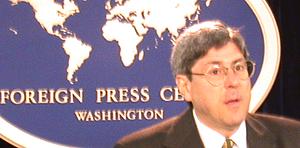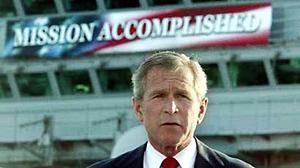D.W. MacKenzie deconstructs the popularity of the Marshall Plan, noting that its benefits to Japan and West Germany have been grossly exaggerated. But if two devastated countries with few natural resources recovered without handouts, why send $87 billion (first installment only) to a country swimming in petrol?
MacKenzie concentrates on the negative effects such a program will have on Iraq:
George Bush may well be planting the seeds of the next round of political misadventures with his plan for foreign aid for Iraq and Afghanistan. What real basis is there for President Bush’s plan to aid these nations? Has the president performed the proper calculation to see if this aid will promote economic efficiency? Bush’s record seems so far to be in line with that of other politicians in the past. Well-connected special interests—those with ties to President Bush—are benefiting the most from the postwar efforts to rebuild Iraq. Why should we not also expect politically connected special interests in the newly emerging Iraq to do the same?
All true, but this is precisely why we’re sending the aid– to ensure U.S. vassals control Iraq for generations to come, just like the Liberal Democrats in Japan, thus allowing a permanent military presence in the country. In Japan, that presence has come at the expense of Okinawans, whose attempts to bring the U.S. military to justice for murder, rape, and land confiscation are almost always squelched by Tokyo. Expect similar ethnic, religious, and/or geographic factors to determine the placement of U.S. bases in Iraq.





 The memo is from another unbiased source: Undersecretary of Defense for Policy Douglas J. Feith,
The memo is from another unbiased source: Undersecretary of Defense for Policy Douglas J. Feith, 